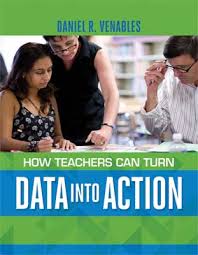Data…the Dreaded “D” Word
Data…the dreaded “D” word. Why does it make teachers, students, and stakeholders shudder so much? Data doesn’t lie? True, but what does data tell us about our students as a person? When we as educators begin to analyze data, we learn more about our students. But what do we do with that information? Do we share this information with the students? How can students truly become more advanced by knowing data about themselves? Do we include others on our accountability quest for achievement?
The summer was filled with time of reflection and introspection into many of these questions. My assistant principal, @GraysonLawrence, and I met to discuss these questions and to reflect this summer on our practices as first year Principal and Assistant Principal. The consensus was clear, something different needed to be done on our part, to lead our school into a diverse data driven culture. Our developed vision is for all faculty AND students to be aware of the data and have an active role in the quest for achievement. After thoughtful research, we aligned our philosophy with that from the research of How Teachers Can Turn Data into Action by Daniel R. Venables. This book addressed many of our short comings as first year administrators:
- We have had a two hour data meeting…Now What?
- We have identified student weaknesses…Now What?
We have aligned our new and improved Data Meetings much as Daniel Venables suggests. We are slowing down the process, leaving more time for teachers to research and develop an action plan, all while leaving behind “knee jerk reactions” to determining how to fill in an achievement gap.
Friday was our first meeting! It was short, sweet, and to the point! Teachers met to analyze beginning of the year test data using Global Scholar for grades 9-12 and Star 360 for grades 5-8. We have where students fall into our data continuum and what gaps each student has in that continuum. Teachers are now tasked on assembling their “village” in our school culture and giving each “village” member a specific task. Our next meeting, we will be discussing each teachers village and the expectations of each member.
I highly suggest this book to anyone looking to reshape how data is assessed, analyzed, and used to drive instruction in your school!
